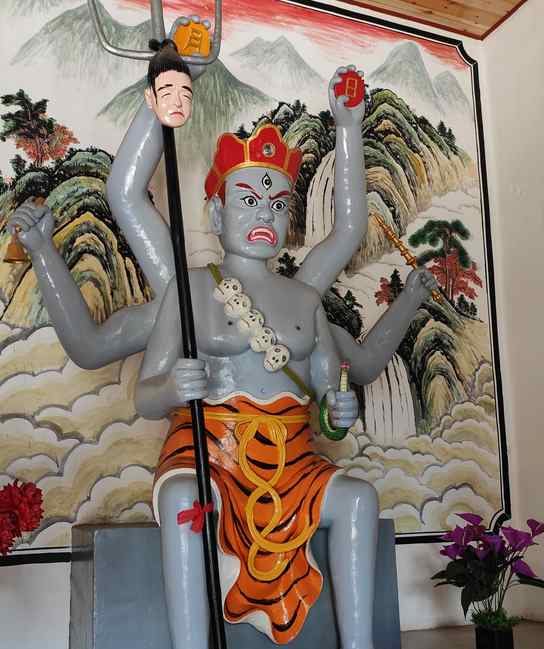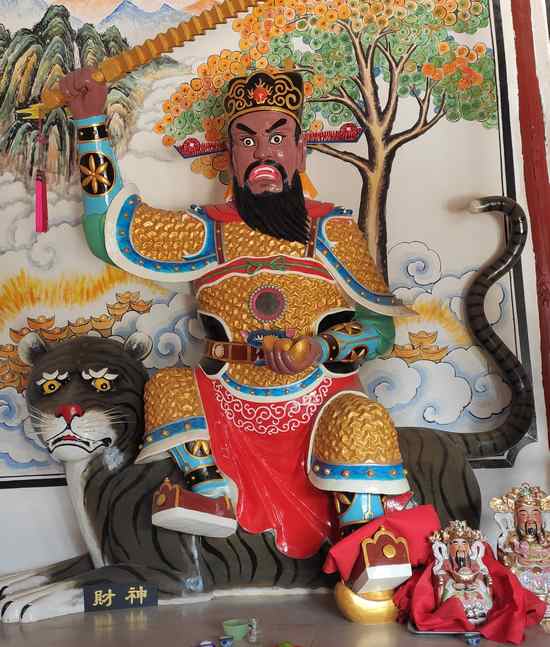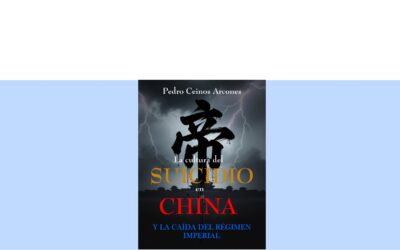The worship of the Local Lords (benzhu) is the most characteristic of the Bai people. Their religious life revolves around the Benzhu temple of each village, as each village venerates a local lord, sometimes a historical figure who sacrificed for the people. In other cases, it is the person who established the village, having mastered the local spirits or reached an agreement with them to allow people to live there. Their worship renews the right to inhabit the place for the descendants of the village founder. As their mythical history is continually recalled in the most solemn celebrations, a mythology unique to each locality has emerged. Their statue is kept in the temple, along with those of other popular deities, wealth deities, and motherhood deities, etc.

An infernal deity in the Benzhu Temple of Xizhou townshio, near Dali Old City.
Each village has its god, who protects the people and their livestock, prevents people from suffering illnesses, and controls the rain, thereby bringing peace and prosperity to the village people, so they are revered in any significant event. This «community god» religion keeps alive the memory of numerous legends and mythical characters, as it could be said that the temple of each of the villages almost bordering the shore of Lake Erhai presents an example of very particular religious syncretism, original mythology, and unparalleled iconographic exuberance.

The God of Wealth Caishen in the Benzhu Temple of Xizhou Township, near Dali Old City.
These types of temples are related to the Tuzhu Temples still seen among the Yi of Weishan and which were erected in most districts of Yunnan centuries ago. Some researchers say that the first of them was founded by Xinuluo, the first king of Nanzhao, and that wherever Nanzhao expanded, these temples were established. Later, temples erected for the protective deities of indigenous villages (turen) were considered Tuzhu Temples.
Last posts
Why It Is Necessary to Study Suicide in Chinese Culture
Why It Is Necessary to Study Suicide in Chinese Culture While drafting new chapters for my Brief History of China, cases of suicide kept appearing in the most diverse circumstances. Ministers and wives who allowed themselves to be buried alive to accompany kings to...
The true origin of the Great Wall
The true origin of the Great wall, as seen in Nicola Di Cosmo (The Origins of the Great Wall. Silk Road Journal. 1993). Generally speaking, the political discourse about foreigners in pre-imperial China tends to justify expansion and conquest, which is exactly what...
Tiger Leaping Gorge: a 3,000-meter drop into the Yangtze River
Tiger Leaping Gorge: a 3,000-meter drop into the Yangtze River The Yangtze River is the longest river in China and, at 6,300 km, the third longest in the world. It is China’s vital artery, flowing from its source on the Tibetan Plateau across the country’s central...







